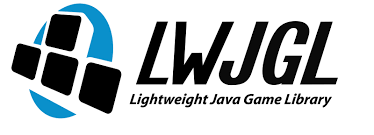
Light-Weight Java Game Library
この記事は公開されてから1年以上経過しています。情報が古い可能性がありますので、ご注意ください。
Introduction
The Lightweight Java Game Library (LWJGL) is an open-source software library that provides bindings to a variety of C libraries for video game developers to Java. It exposes cross-platform libraries commonly used in developing video games and multimedia titles, such as Vulkan, OpenGL, OpenAL and OpenCL.
The primary goal of the project is to provide a way for Java developers to get access to resources that are otherwise unavailable or poorly implemented on the existing Java platform. The main philosophy is to expose underlying technology as a thin wrapper, thus creating an API close to the original.
Setting up LWJGL
Step 1: Install JDK
Install JDK, an IDE such as Eclipse/NetBeans or a programming text editor. You need a working Java programming environment to use LWJGL.
Step 2: Download & Install
Download the latest release of LWJGL binary (e.g., lwjgl-2.9.1.zip) from http://lwjgl.org ⇒ "Download". You may also download the source, javadoc, and applet.
- Unzip the downloaded file "
lwjgl-2.9.1.zip". The jar-files and native-libraries are kept in the "jar" and "native" sub-directories, respectively.
(Optional) Create a LWJGL binary directory, says "lwjgl-2.9.1" - I shall denote the binary directory as $LWJGL_HOME. Create sub-directories "jar", "lib", "src", "javadoc" under the $LWJGL_HOME. Copy the necessary jar-file, native libraries of your operating platform, and source-files into the appropriate sub-directories. For example, for Win32, copy all the jar-file into "jar"; the 32-bit libraries at "native\windows" into "lib"; and "lwjgl-source-2.9.1.zip" into "src" (no need to unzip). Unzip the javadocs downloaded into "javadoc".
Step 3: Customize for Eclipse
- Create a User Library: We shall first create a Eclipse's User Library called "lwjgl-2.9.1", which specifies the jar-files, native libraries (
dll), javadoc, and source files for the JOGL API. All the JOGL projects can then include this user library in its build path.- From "Window" menu ⇒ Preferences ⇒ Java ⇒ Build Path ⇒ User Libraries ⇒ New ⇒ In "User library name", enter "
lwjgl-2.9.1". - In "User Library" dialog ⇒ Select "
lwjgl-2.9.1" ⇒ Add JAR... ⇒ Navigate to "$LWJGL_HOME\jar", and select "lwjgl.jar". - Expand the "
lwjgl.jar" node, select "Native library location: (none)" ⇒ "Edit..." ⇒ External Folder... ⇒ select "$LWJGL_HOME\lib" (to provide the path for the native codedll's, such as "lwjgl.dll", and etc.). You might need to repeat the above step for the other jar-files if they are used in your programs. - (Optional But Recommended) Expand the "
lwjgl.jar" node again ⇒ Select "Javadoc location"⇒ "Edit..."- Specify the javadoc's path (either file: or http:) in "Javadoc URL" if you use an unzip version of the javadoc.
- Specify the javadoc's archive file (either zip or jar) in "Javadoc in archive" if you use a zip file.
Choose "Validate", which search for an "
index.html" file. This is needed for Eclipse to display javadoc information about classes and methods. - (Optional But Recommended) You may provide the source files by editing "Source attachment" ⇒ "Edit..." ⇒ "External File..." ⇒ Select the source file in zip form. Source is needed only if you are interested to debug into the JOGL source codes.
- From "Window" menu ⇒ Preferences ⇒ Java ⇒ Build Path ⇒ User Libraries ⇒ New ⇒ In "User library name", enter "
- Include the User Library: For EACH JAVA PROJECT created that uses LWJGL, right-click on the project ⇒ Build Path ⇒ Add Libraries ⇒ Select "User Library" ⇒ Check "
lwjgl-2.9.1".
Step 4: Customize for JDK/Editor
You need to modify two environment variables - CLASSPATH and PATH. Read "Environment Variables For Java Applications" on how to set these environment variables.
Modify the CLASSPATH environment variable to include the full-path filenames of "lwjgl.jar", for example,
prompt> set classpath=.;$LWJGL_HOME\lib\lwjgl.all.jar
where $LWJGL_HOME denotes the LWJGL installed directory. Take note that you should include the current working directory '.'.
Modified the PATH environment variable to include the full path to the LWJGL's "lib" directory for accessing the native libraries (e.g., "lwjgl.dll"), for example,
prompt> set path=$LWJGL_HOME\lib;......






